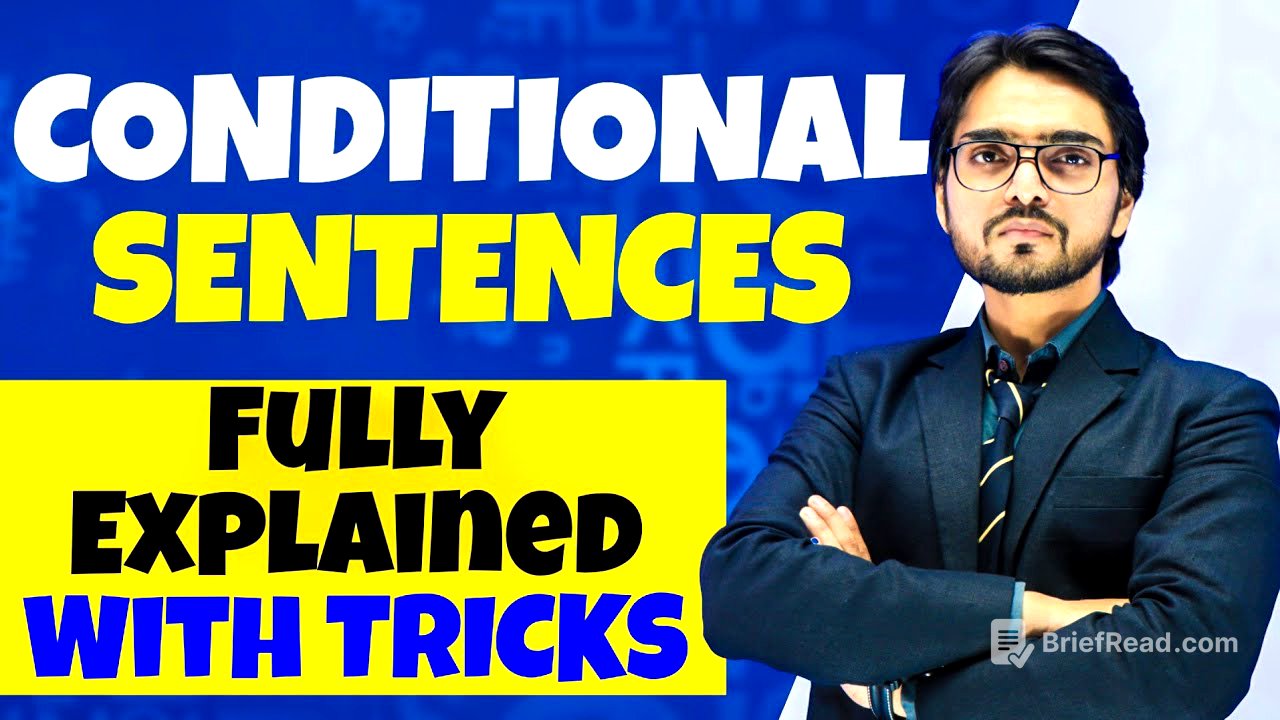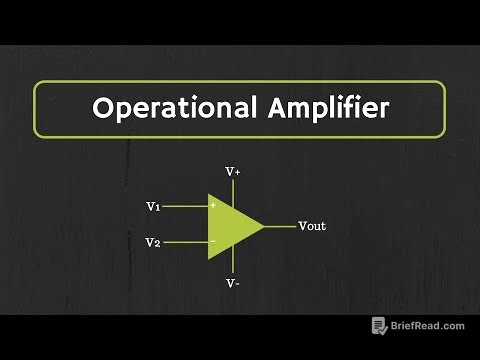TLDR;
This video explains conditional sentences in English grammar, focusing on their structure and usage in both spoken and written English. It introduces three main tricks to easily solve conditional sentences, which involve recognizing patterns in tense usage within the sentences. The video also recommends a book for practicing English grammar.
- Conditional sentences express conditions and their outcomes.
- There are three main tricks to easily solve conditional sentences.
- The video uses examples and real-life scenarios to illustrate the concepts.
Intro of the Video [0:00]
The video introduces the topic of conditional sentences in English, promising to teach a trick that will enable viewers to solve related questions quickly. The aim is to simplify the understanding and application of conditional sentences for both speaking and competitive exams.
Conditional Sentences Concept [0:48]
Conditional sentences are defined as those that include a condition, which can refer to a specific requirement or a general situation. Examples are given to illustrate how these sentences are used in everyday conversations to discuss hypothetical scenarios and their potential outcomes. The video highlights the importance of understanding conditional sentences for various contexts, including exams and casual conversation.
Conditional Sentences Trick 1 [5:54]
The first trick involves identifying the tense used after "if" in a conditional sentence. If the sentence uses the present indefinite tense, the subsequent sentence will also be in either the present indefinite or future indefinite tense. This rule applies unless the sentence expresses a universal truth, in which case both parts of the sentence remain in the present indefinite tense.
Conditional Sentences Example [6:51]
Examples are provided to illustrate the first trick. For instance, touching fire results in getting burned, which is a universal truth, hence both clauses are in the present indefinite tense. Another example discusses studying hard, which leads to passing exams, using future indefinite tense.
Get Oswal General English Book For Competitive Exams [7:37]
The video recommends the Oswal General English Book for those preparing for competitive exams or aiming to improve their grammar. The book covers various topics, including conditional sentences, and provides practice exercises with easy-to-understand language. It is described as a high-scoring resource for the English section of competitive exams.
Conditional Sentences Example [9:10]
The first trick is revisited with additional examples to reinforce understanding. The example used is "If children are hungry, they cry", which illustrates a present indefinite condition leading to a present indefinite result.
Conditional Sentences Trick 2 [10:08]
The second trick focuses on sentences where the first clause after "if" is in the past indefinite tense. In such cases, the second clause will include "would" or another modal verb. This pattern is highlighted as a key identifier for this type of conditional sentence.
Conditional Sentences Trick 3 [12:03]
The third trick addresses conditional sentences where the first clause uses a past perfect tense. The corresponding clause will then include "would have" followed by the past participle form of the verb. This structure indicates a hypothetical past situation and its unrealized outcome.
Conditional Sentences Trick Recap [14:02]
A recap of the three tricks is provided:
- Present Indefinite after "if" leads to Present or Future Indefinite.
- Past Indefinite after "if" leads to the use of "would" or other modals.
- Past Perfect after "if" leads to "would have" + past participle.
Conditional Sentences Questions [14:46]
Viewers are tested on their understanding of the tricks with several example questions. These questions require applying the learned rules to identify the correct tense and structure in conditional sentences.
Outro [17:40]
The video concludes by encouraging viewers to provide feedback on the trick and suggest future topics. It also promotes the recommended English grammar book and encourages viewers to share the video to help others understand conditional sentences.









